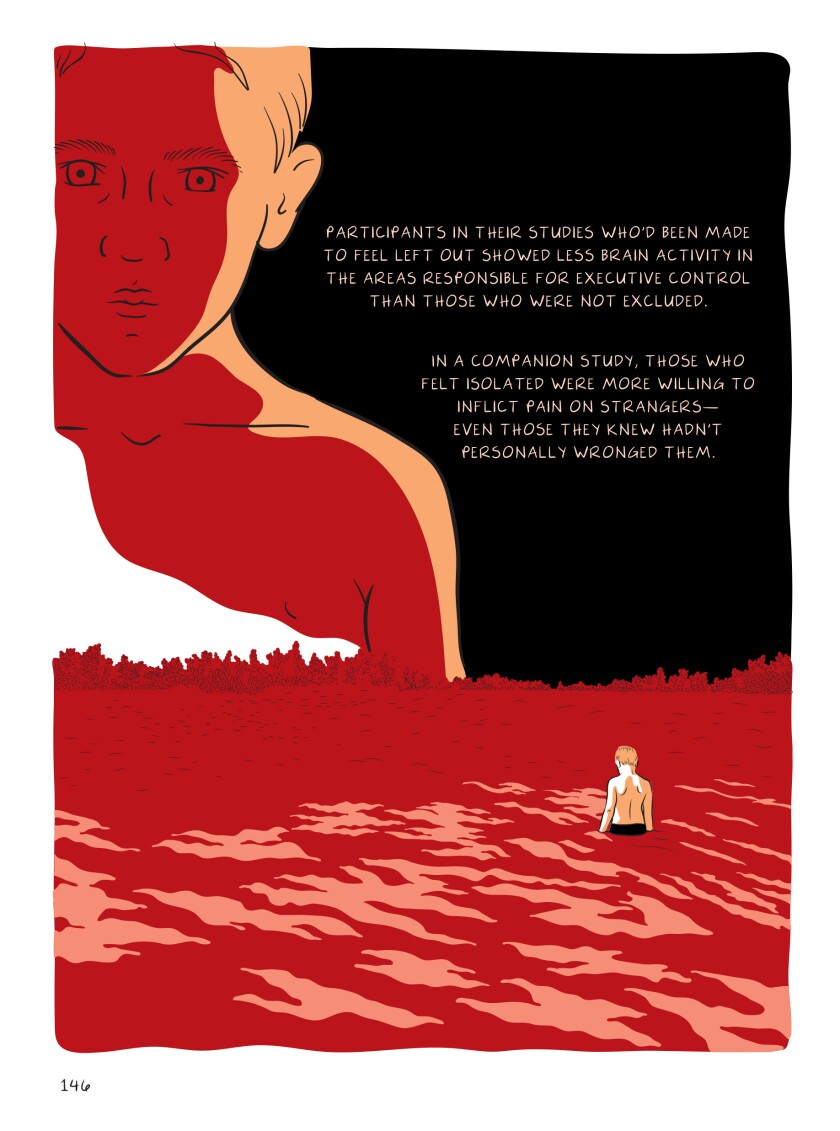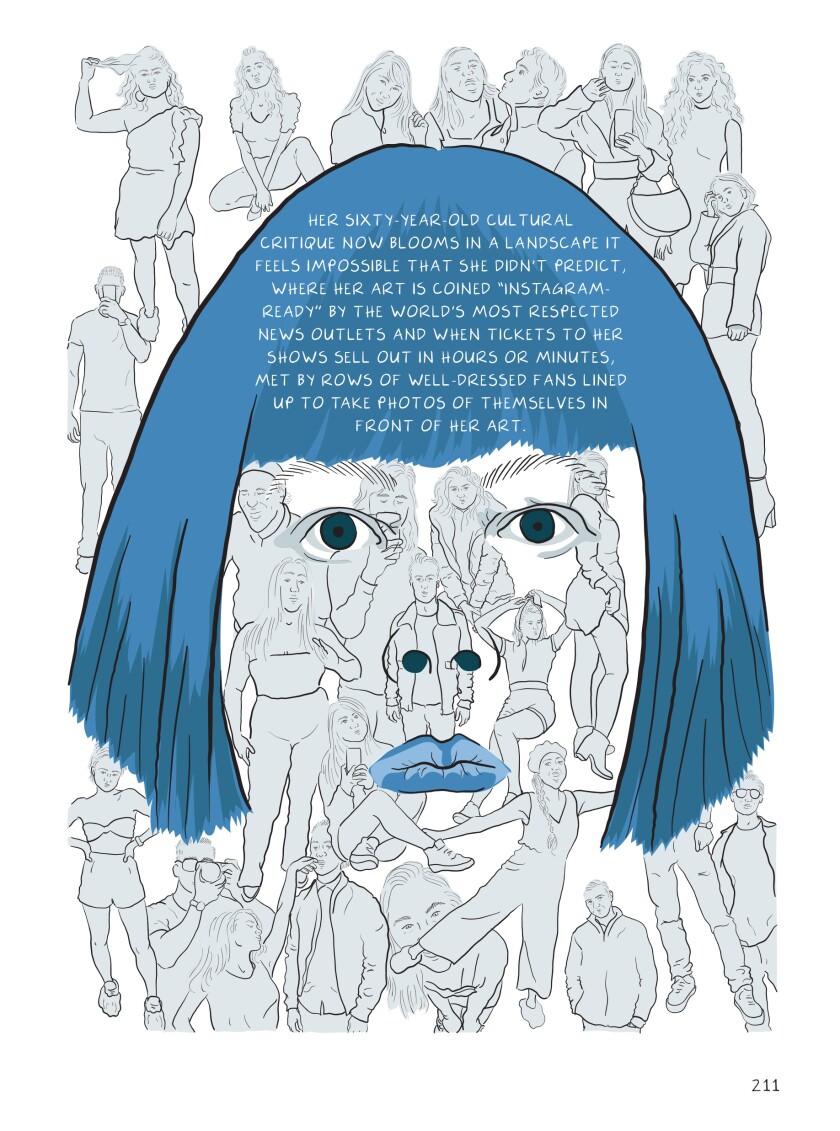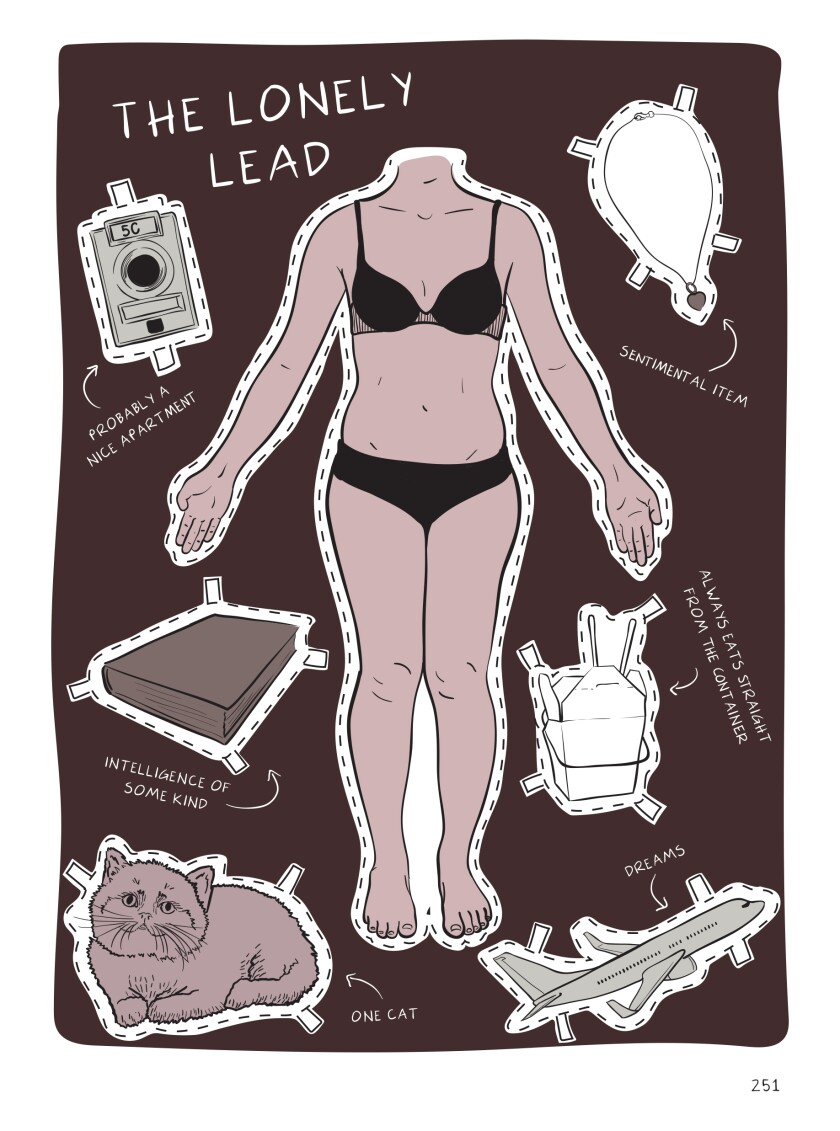On the Shelf
Seek You: A Journey Through American Loneliness
By Kristen Radtke
Pantheon: 352 pages, $30
If you buy books linked on our site, The Times may earn a commission from Bookshop.org, whose fees support independent bookstores.
Kristen Radtke is a brooder; few would call her a blithe spirit. (I can relate.) Her first book, a pensive graphic memoir titled “Imagine Wanting Only This” (2017), was driven by her determination to wrap her head around the impermanence of things, whether bright and beautiful or blighted. She returns this month with “Seek You,” an exploration of loneliness in America, a subject that has become increasingly germane in the five years since she began her project. The result is another resonant, haunting volume of graphic nonfiction written and drawn in the key of Edward Hopper.
The book’s title provides a window into the layered depth of Radtke’s work. “Seek You” is an aural play on the CQ calls with which amateur ham radio operators — like the author’s father — reach out to strangers across frequencies with a series of monotone beeps. Radtke explains that the first two syllables of the French telecommunications alert used to command attention, “Sécurité,” were shortened to CQ in English. “Over time, English speakers took it to stand for ‘Seek You,’” she writes. In choosing that for her title, Radtke alerts us that her memoir on loneliness is also about seeking others across wavelengths and asking them to listen — in other words, about the human impulse to connect.
Her subject may be timely, but Radtke, the art director and deputy publisher of the Believer magazine, is never superficial or fleeting. As she also demonstrated in “Imagine,” she does not shy from big, potentially overwhelming questions.

The juxtaposition of carefully researched, tightly composed text with the emotive immediacy of Radtke’s art amplifies the impact of “Seek You.”
(© 2021 Kristen Radtke/Pantheon)
“Seek You” is part of a growing trend of graphic narratives that hybridize memoir with social history rendered both verbally and visually. (Nora Krug’s “Belonging” and Alison Bechdel’s “The Secret to Superhuman Strength” are examples.) It encompasses personal and cultural history, journalism, social science and scientific research in psychology, neuroscience and evolutionary biology. References include Emily Dickinson, who called loneliness “the horror not to be surveyed,” and Hannah Arendt, who flagged the feeling as “the common ground for terror” in “The Origins of Totalitarianism.” But it’s the juxtaposition of Radtke’s carefully researched, tightly composed text with the emotive immediacy of her art that amplifies the book’s impact.
To meld her various strands, Radtke overlays informative, hand-lettered text on full-page illustrations washed in brown, orange or charcoal. They range from spare and moody nighttime cityscapes to a set of graphically complex spreads teeming with friends’ accounts of their loneliest experiences. There are collages of things like glaring political signs, Twitter feeds or tabloid headlines about mass shooters characterized as loners. The word “graphic” is a far more appropriate descriptor of her work than “comic.”
Radtke cites studies that point to isolation as a prevalent health issue associated with an increased risk of death. But she also considers the role of television laugh tracks in easing loneliness, along with a British helpline for lonely seniors that fields more than 10,000 calls a week. She notes that isolation is in our national DNA, going back to the idealization of lonesome cowboys in old Western movies.
Radtke is careful to distinguish between being alone (aloneness) and feeling lonely (loneliness), and to make clear that one can feel lonely even when surrounded by loved ones. Loneliness, she writes with impressive precision, “isn’t necessarily tied to whether you have a partner or a best friend … It’s a variance that rests in the space between the relationships you have and the relationships you want. Loneliness lives in the gap.”

In ‘Seek You,’ Radtke is careful to distinguish between being alone (aloneness) and feeling lonely (loneliness).
(© 2021 Kristen Radtke/Pantheon)
“Seek You,” like Radtke’s first book, is filled with drawings of people staring at their glowing cellphones — on subways, buses and sidewalks; in bed. “Technology is an easy scapegoat,” she writes, “with disconnection attributed as the byproduct of a digital age ripened by America’s growing narcissism.” But, she notes, “Scholars of every era bemoan the perceived downfall of their collective cultures” — whether they ascribe it to radio, television, telephones or Facebook. She comments, “it seems to me quite possible that we have always been a very lonely people.”
In a book divided into sections titled Listen, Watch, Click and Touch, the most disturbing examples of isolation involve the dire repercussions of limited physical contact. Radtke writes of how parents in the first half of the 20th century were instructed not to over-coddle their babies, lest they grew up to be “sissies.” She dives deep into psychologist Harry Harlow’s outrageously cruel experiments in maternal and social deprivation with rhesus monkeys, painting a chilling portrait of this emotionally cauterized man. Yet Radtke also acknowledges that his sadistic experiments proved the importance of love and changed the way children were raised.
“Seek You” isn’t the downer one might expect, given its sobering subject matter. If you accept that loneliness — like the impermanence at the heart of Radtke’s first book — is a fact of life, you might take comfort in being reminded that you’re not alone in this widely shared condition. There’s comfort to be found too, in the skillful elegance with which the author conveys her ideas.

In ‘Seek You,’ Radtke calls technology “an easy scapegoat” for loneliness.
(© 2021 Kristen Radtke/Pantheon)
In one of the most striking sequences in “Seek You,” Radtke beautifully meshes words and images to capture the way loneliness makes her feel: as if she’s submerged underwater and “fumbling against a muted world in which the sound of your own body is loud against the quilt of everything else.” Her study in loneliness, she says, has been driven by a desire not to drown in such feelings but instead to find “a way for each of us to swim toward a once-invisible ledge and reach for it.”
“Seek You” is indeed for seekers.
McAlpin reviews books regularly for NPR.org, the Wall Street Journal and Christian Science Monitor.
window.fbAsyncInit = function() { FB.init({
appId : '134435029966155',
xfbml : true, version : 'v2.9' }); };
(function(d, s, id){ var js, fjs = d.getElementsByTagName(s)[0]; if (d.getElementById(id)) {return;} js = d.createElement(s); js.id = id; js.src = "https://connect.facebook.net/en_US/sdk.js"; fjs.parentNode.insertBefore(js, fjs); }(document, 'script', 'facebook-jssdk'));
For all the latest Entertainment News Click Here
For the latest news and updates, follow us on Google News.
